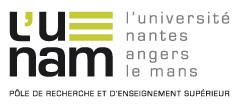A microscopic public transportation simulation framework based on machine learning
Résumé
The evaluation of performance of public transportation, such as bus lines for example, is a major issue for operators. To be able to integrate specific and local behaviors, microscopic simulations of the lines, modelling each buses on a daily basis, brings an actual added value in terms of precision and quality. A scientific deadlock then appears regarding the parameterization of the simulation model. In order to be able to gather relevant performance indicators on a potential evolution of the configuration of the line, validated and modifiable simulation models need to be developed. This study aims at proposing a model development methodology based on a multi-agent simulation framework and data inputs extracted by a hybrid approach combining machine learning (ML) trained on actual bus data to predict travel times and probabilistic distributions to accurately estimate travel time variability. It also aims to propose a two-step validation framework that exhibits the performance of the obtained model on a case study based on actual data. The results of the proposed approach are validated by a real case study of three bus lines, including a number of simulation scenarios, to study the impacts of bus recovery time and bus control strategies on bus punctuality. The results obtained show that proposed hybrid approach combining ML with probabilistic distributions outperforms probabilistic distributions on average. Overall, the results show a good fit with the actual Key Performance Indicator (KPI) used by bus operators.
| Origine | Publication financée par une institution |
|---|---|
| licence |



